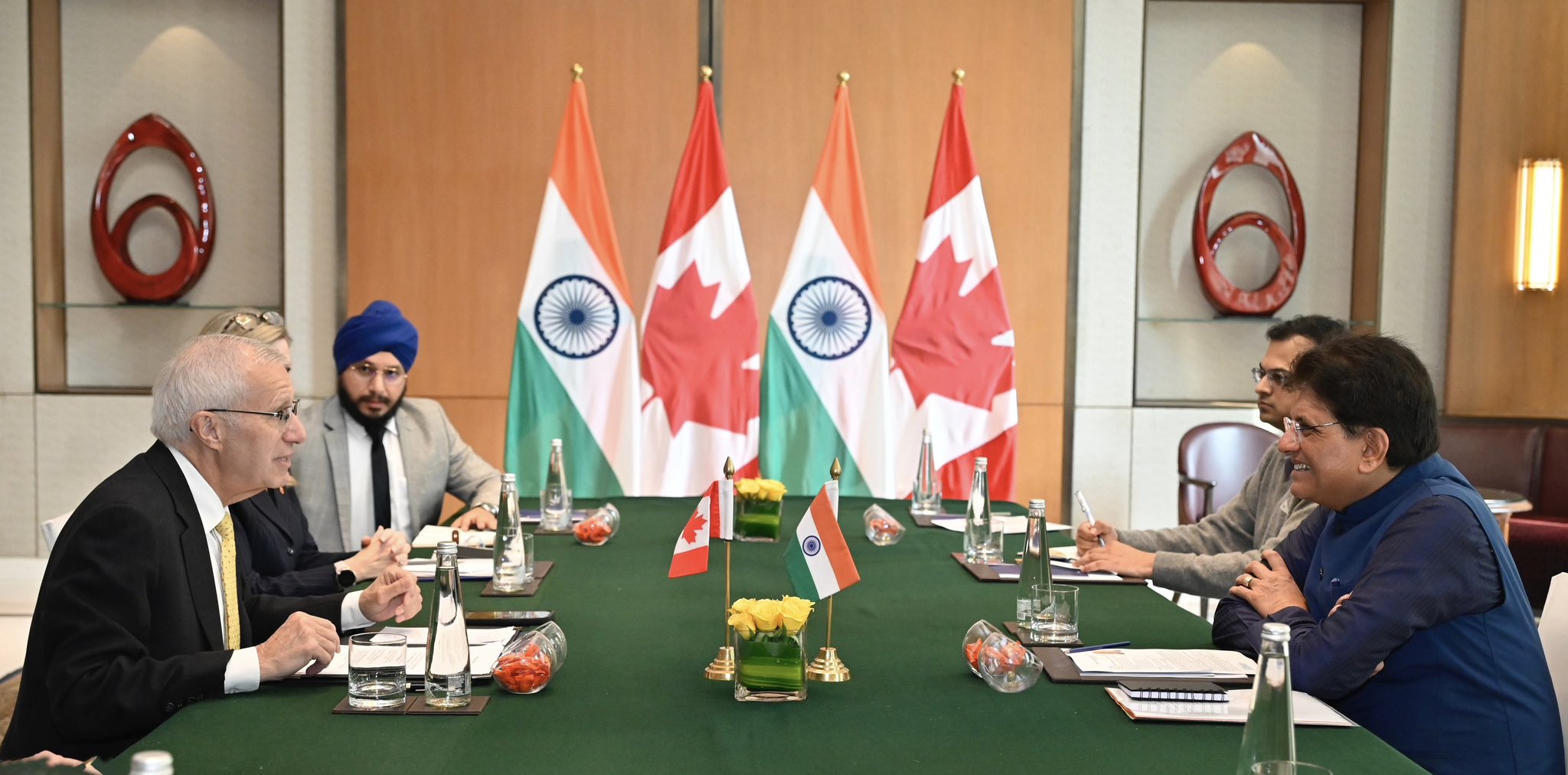India is looking to significantly scale up its cooperation with Canada in areas such as critical minerals, clean and nuclear energy, mineral processing, and supply-chain diversification, as both countries work to deepen economic engagement, Commerce and Industry Minister Piyush Goyal said on Monday.
Addressing the Indo-Canadian Business Chamber in New Delhi, Goyal described the two countries as “natural allies” with strong complementarities, noting that India offers major advantages in advanced technologies such as artificial intelligence, quantum computing, machine learning and next-generation data centres, supported by the world’s largest annual pool of STEM graduates.
Goyal said the bilateral partnership continues to be anchored in mutual trust and shared democratic values, with collaboration steadily growing across trade, investment and innovation-driven sectors. He highlighted the recent talks between Prime Minister Narendra Modi and Canadian Prime Minister Mark Carney on the sidelines of the G20 Summit in Johannesburg, where both leaders agreed to fast-track negotiations on a high-ambition Comprehensive Economic Partnership Agreement (CEPA) with the goal of doubling bilateral trade to USD 50 billion by 2030.
He said the renewed momentum — including the adoption of the Australia-Canada-India Technology and Innovation (ACITI) Partnership at the G20 and the launch of a new bilateral roadmap in October — reflects stronger investor confidence and a more robust institutional mechanism to address trade challenges.
The minister pointed to India’s current 500-GW power grid, half of which comes from clean sources, enabling the resilient infrastructure required for AI-driven growth. He said India’s plan to double clean energy capacity to 500 GW by 2030 places the country among the few democracies capable of offering affordable round-the-clock renewable power at competitive global rates.
Goyal also referred to the seventh India-Canada Ministerial Dialogue earlier this month, where the two sides agreed to revive business-to-business engagement, promote reciprocal industry delegations and enhance collaboration in sectors such as education, space, science and technology, defence and manufacturing. He welcomed continued investment inflows into India from Canadian entities — particularly pension funds — and said a growing number of Canadian companies are exploring expansion opportunities in the Indian market.
Underscoring India’s economic transformation, Goyal said the country has moved from the “Fragile Five” grouping to become the world’s fifth-largest economy, and is on track to rise to third place within the next two to two-and-a-half years. Strong financial stability, high foreign exchange reserves, infrastructure expansion and a vibrant capital market — whose value has grown more than fourfold in the last decade — demonstrate sustained investor trust, he noted.
Goyal laid out a five-pillar strategy to advance India–Canada ties, calling for actionable outcomes, sectoral roadmaps and measurable milestones. He urged revitalisation of the CEO Forum, stronger cooperation in critical technologies, participation in India’s upcoming AI Impact Summit in 2026, and enhanced joint innovation supported by a USD 12 billion R&D fund and India’s strong intellectual property regime.
As India advances toward its goal of becoming a developed nation by 2047, Goyal invited Canadian companies to expand their presence in what he described as a stable, transparent and opportunity-rich investment environment. The minister said that combining Canadian innovation with India’s scale and capabilities could unlock substantial economic gains for both sides, expressing confidence that the bilateral partnership will continue to strengthen in the years ahead.














